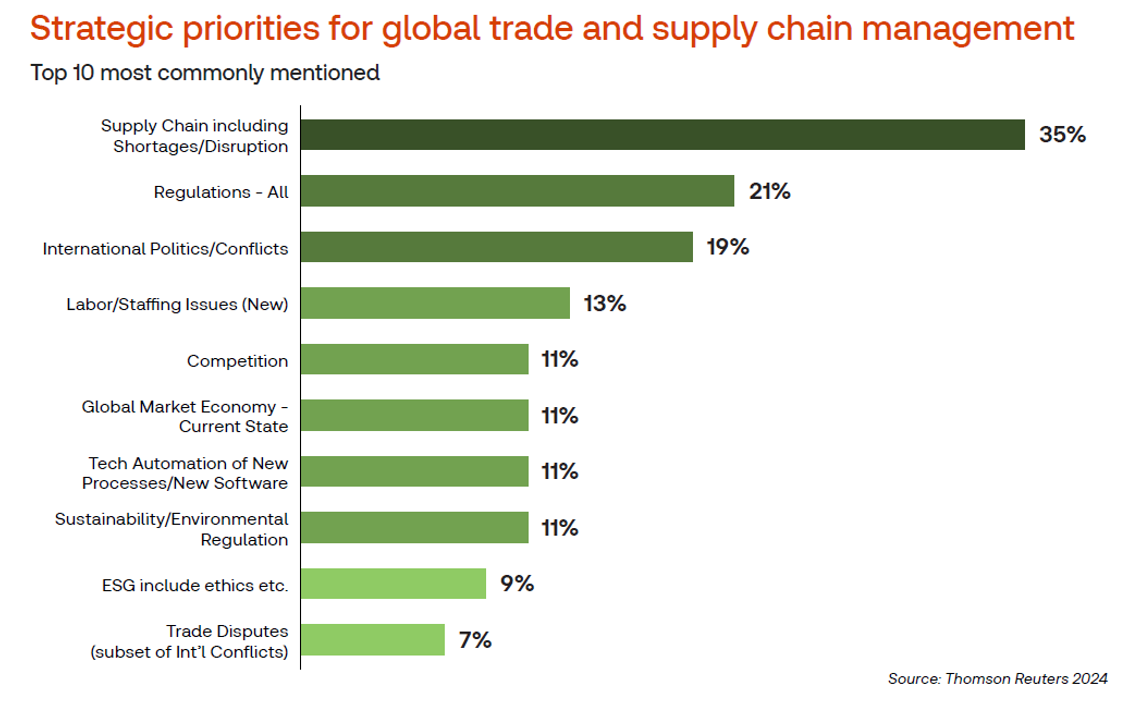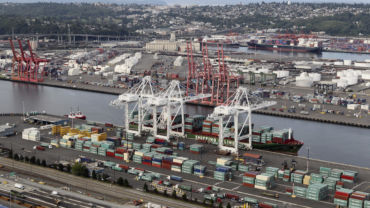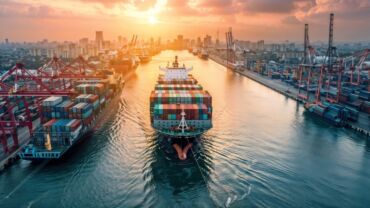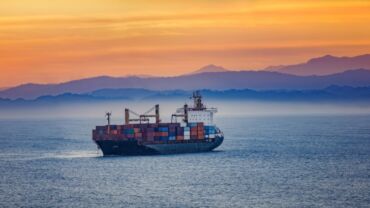In the Thomson Reuters Institute’s newly published "2024 Global Trade Report", we look at the leading strategic priorities and concerns expressed by professionals in the global trade sector
The landscape of global trade continues to evolve rapidly, with businesses facing an increasingly intricate web of challenges and opportunities. The just-published 2024 Global Trade Report from the Thomson Reuters Institute found that the top issues that concern global trade professionals the most include supply chain disruptions, geopolitical conflicts, and labor concerns.
The report distills the results of a survey of 225 global trade professionals from companies and organizations based in North America (the United States, Canada, and Mexico), the European Union, the United Kingdom, Latin America, and the Asia-Pacific region. Most of these survey respondents were upper-level executives, directors, and managers involved in various aspects of global trade, including operations, logistics, procurement, supply-chain management, and compliance. Now in its third year, the annual survey has been expanded to provide an even more comprehensive global perspective on the issues and trends that are impacting international trade.
Supply chains lie at the heart of global trade businesses, and it’s not surprising that many of the top challenges and strategic priorities this year involve supply chains.
Concerns about geopolitical issues — such as conflicts, geopolitically charged export control laws, and retaliatory tariffs — remain as high as ever. Also, the growth of trade regulations continues to complicate trade management and compliance. Inflation, one of the top concerns in last year’s report, has waned in importance, according to respondents, as inflation has cooled across most global markets.
Not surprisingly, survey respondents said they are increasingly looking to technology to reduce costs, improve efficiency and risk management, and drive decision-making. At the same time, they are proceeding cautiously in adopting generative artificial intelligence (GenAI) into their work operations.
Key findings of the report
-
-
- Economic uncertainty remains a major concern for international trade professionals. Almost three-quarters (74%) of survey respondents said their businesses were impacted by supply chain due diligence, and more than half (52%) said they were impacted by geopolitically charged export control laws.
- Labor issues — including labor costs, shortages of skilled labor, and labor laws — was cited as one of the top strategic priorities.
- Improving supply chain visibility, security, and data protection are the top technology investment priorities.
- A large majority (81%) of respondents said that environmental, social & governance (ESG) issues are a major consideration in selecting suppliers; and key drivers of decisions to collect supplier ESG data include regulatory requirements, requirements from significant customers, investor pressure, and concerns over reputational risk.
-
Insights and priorities
Supply chains lie at the heart of global trade businesses, and it’s not surprising that many of the top challenges and strategic priorities cited by respondents this year involve supply chains. Managing supply chains, including dealing with disruptions, remains top-of-mind for many global trade professionals, the survey showed. Supply chain due diligence is by far the regulatory and customs systems change with the most widespread impact globally, according to respondents, and in response to these issues, companies are looking to improve visibility and management of supply chains, as well as their ability to deal with supply chain disruptions.
Dealing with regulations also remains a top priority as trade regulations continue to grow in both scale and complexity. However, there are significant differences among respondents from different global regions in what they say are their top strategic priorities and concerns. For example, retaliatory tariffs are disproportionately impacting businesses in the US and the Asia-Pacific region, primarily because of the on-going trade disputes between the US and China. Similarly, recent changes to customs systems in the UK, Mexico, Switzerland, and other countries are disproportionately impacting their respective regional trading partners.
The report found that global trade professionals are employing a number of strategies to address their top concerns, including supply chain diversification and greater use of technology.

Technology
Investment in technology and automation remains a key strategy that many global trade businesses are pursuing in order to improve efficiency, reduce costs, and more effectively manage an increasingly complex global trade environment. Given the importance of supply chain issues such as disruptions and due diligence, technology priorities include improved visibility into supplier performance, and inventory management across the entire supply chain.
Global trade professionals are generally taking a wait-and-see attitude on how GenAI will impact their business. Less than one-quarter are currently making AI an investment priority, according to the report.
Looking ahead
The growing complexity of the global trade environment demands adaptability and nimbleness. The key to navigating this complexity lies in developing robust risk management strategies, maintaining flexible supply chains, and investing in technologies that provide actionable insights and strategic guidance.
As the report demonstrates, those organizations that can effectively manage their supply chains, maintain operational agility, and leverage technology for greater efficiency and strategic foresight will be best positioned to manage risk and identify new opportunities in the evolving global trade landscape.
You can download a full copy of the Thomson Reuters Institute’s 2024 Global Trade Report here.







